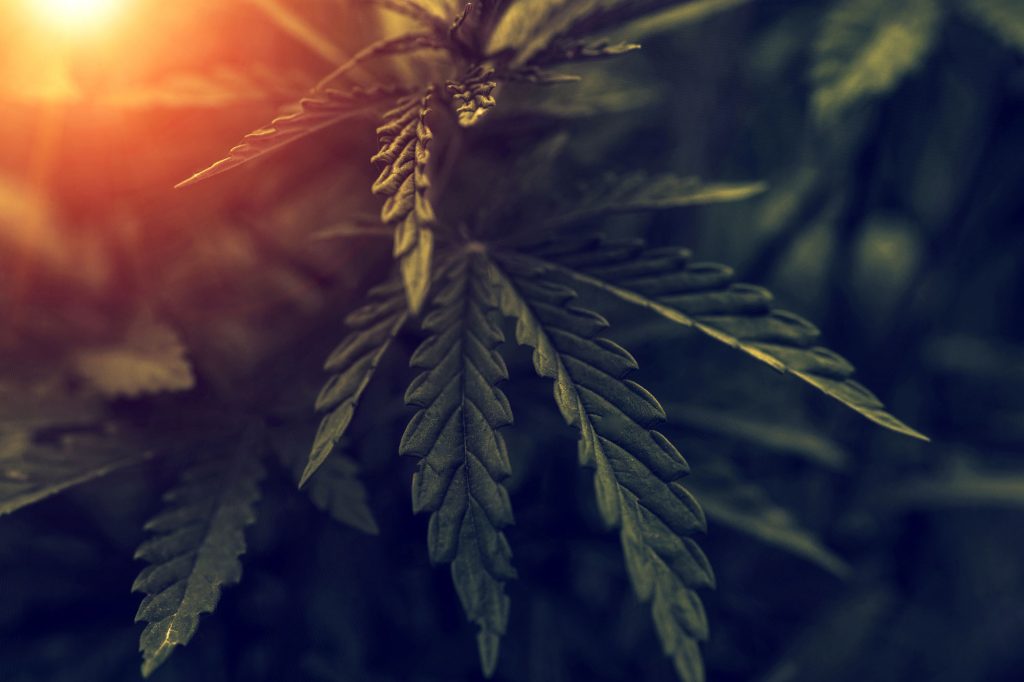by Deb Powers
If you’re a cannabis connoisseur, you already know what THC is and what it does for you (hint: it’s what inspires those dreamy, bliss-filled moments of joy). You may not know as much about its cousin — or maybe we should say its mama — THCa. Check out this THC vs THCa overview to get informed about THCa, which will help you make more empowering wellness and recreational choices.
It’s All About Chemistry
Let’s take a little step back to talk about cannabinoids and how they engage with your body and the endocannabinoid system. Scientists have identified at least 113 cannabinoids present in the cannabis plant. All of the major cannabinoids come from CBGA, which Alexander Beadle refers to as the “mother of all cannabinoids.” CBGA is what’s called a “precursor,” which, in this context, is a chemical that is transformed into another compound or chemical during a chemical reaction.
Applied to cannabis, and particularly to THC, THCa is transformed into THC through chemical interaction, generally the application of heat. As an example, when someone smokes, the application of heat to bud creates THC, which then interacts with the endocannabinoid receivers in your body to produce — hopefully — a delightful high.
What actually happens when THCa is exposed to heat is called “decarboxylation.” Some folks refer to it as “activating” the chemical compounds in cannabis.
Why THC Gets You High – And THCa Doesn’t
THC and THCa have different shapes. Decarboxylation unhitches a molecule of CO2 from THCa, turning it into THC. THCa isn’t shaped to fit into the endocannabinoid receptors in your body. THC is. It’s as simple as that.
THCa vs. THC: The Benefits
Mind you, that doesn’t mean that THCa is virtually useless — there’s a lot of research focusing on the possible beneficial pharmacologic effects of THCa. It just won’t open your mind or unharness your creativity like THC. While THCa doesn’t bind with the endocannabinoid receptors in your body, it does deliver some of the same medicinal benefits. For example:
- Preliminary studies show that THCa may help reduce epileptic seizure activity
- THCa exhibits some neuroprotective benefits and may reduce some symptoms of neurological disorders
- Early studies on THCa show some promise in reducing inflammation associated with IBD
- THCa may help control obesity and related metabolic disorders, such as diabetes
Many of these benefits are also associated with THC. One of the primary drivers in research into THCa is coming up with ways for people to access the health benefits without the accompanying high.
From THCa to THC 4 Different Ways
Of course, smoking isn’t the only — or even the most efficient — way to release THC from bud. Anyone who has experimented with creating their own edibles knows that before you can cook with it, you need to decarb it, usually by heating it in butter, or baking it in the oven. Here’s a look at different methods of decarboxylation and how they affect the THC content and availability in your product.
Sunlight
Yup, it can be as simple as letting your stash sit in the hot sun, though it’s not a recommended method. In fact, it can result in a loss of THC.
Room Temperature Conversion
You can get a little conversion if you leave your flower sitting in oil or alcohol at room temperature for a long enough time. After 10 days at 77 F (a bit higher than room temp, really), olive oil will convert about 22% of the THCa into THC, and alcohol will convert about 67%.
Smoking
Applying a flame to cannabis will convert THCa to THC very quickly, and while it’s a common method of consuming cannabis, it’s not the most efficient way to enjoy it. Among other things, some of your expected high is literally going up in smoke.
Dry Herb Vaporizing
Vaporizing ground bud is one of the more efficient ways of converting THCa to THC. Because you’re not burning your bud, you don’t lose any of the resulting chemicals to the air. You’ll also taste a lot more of the lovely flavors that come from the terpenes. You’re still not converting all of the THCa, though, so you could be getting even more lift from your cannabis.
Vape Pens
Vape pens give you that extra added lift. Rather than vaping ground flower, you’re pulling the THC from already decarbed cannabis, as well as converting THCa that wasn’t converted earlier in the decarb process. The HiPhi extraction process used by Mistifi takes advantage of the benefits of low-temperature extraction and combines it with pressure. The resulting oil perfectly replicates the ratio of THC and other terpenes that exist in the original herb.
Final Thoughts
In summary, THC is derived from THCa, so the THC level in a cannabis product is reliant on the levels of THCa in the original flower. The percentage of THC in the final product is also affected by the method used to activate the THCa, and the technique used to consume it.
If you’re looking for maximum THC, the clear choice is vaping distilled cannabis extract. Cannabis blends, like Over the Rainbow or Houdini, add the ability to customize your experience to produce the effects you’re expecting.
Sources:
https://www.ncbi.nlm.nih.gov/pmc/articles/PMC5549534/
https://www.ncbi.nlm.nih.gov/pmc/articles/PMC5627671/
https://docmj.com/2019/05/14/how-many-different-cannabinoids-are-there/
https://www.analyticalcannabis.com/articles/thca-vs-thc-what-are-the-differences-312205

